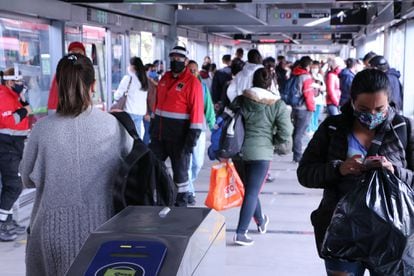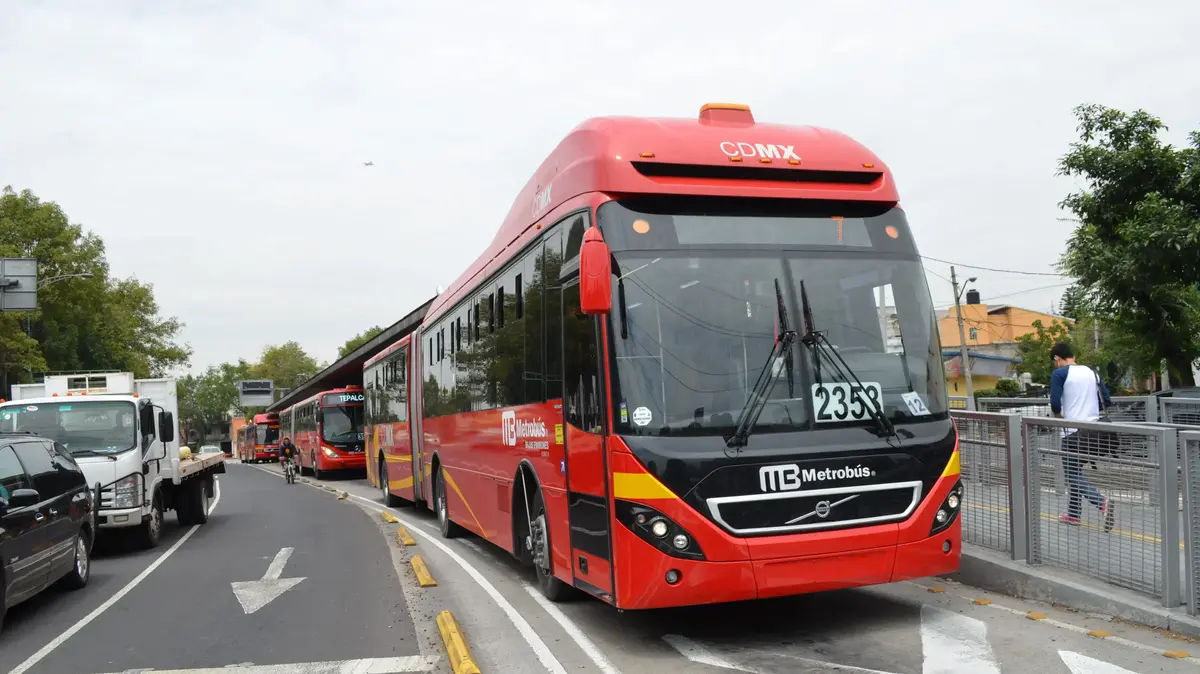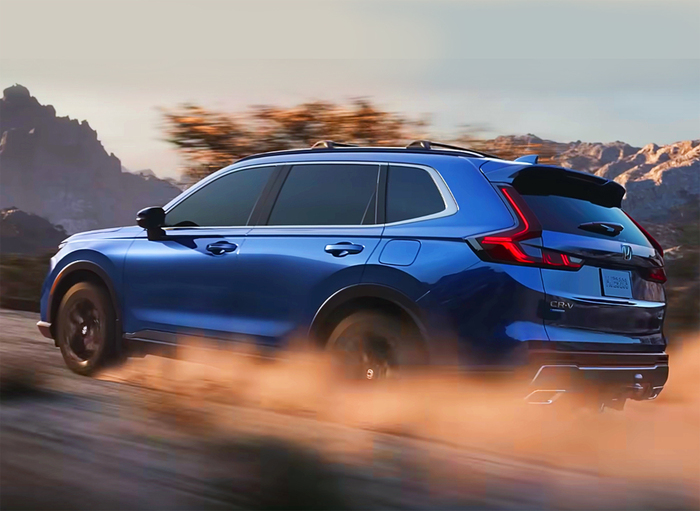Transmilenio users in Bogotá during the pandemic.Jairo Bedoya / World Bank
Amid the sad news surrounding the worsening and prolongation of the covid-19 pandemic, Latin America has reason to be hopeful: the region can motivate the rest of the world to progressively incorporate electric buses, something that ultimately it will help cities to be more sustainable during the post-pandemic.
This is one of the main conclusions of the study Leading clean urban recovery with electric buses -
Innovative business models show great potential in Latin America
(i), published by the International Finance Corporation - IFC (the World Bank Group's body for the private sector) and C40 (a network of cities committed to curbing climate change).
The document highlights the significant progress made by countries such as Chile and Colombia.
Santiago has 776 electric buses, which operate under private contracts.
Likewise, the city of Bogotá announced in January that it will modernize the Transmilenio fleet with 596 new buses, for a total of 1,485 electric vehicles (“the largest fleet outside of China”, local authorities stressed; the Asian country has almost the 98% of the electric buses on the planet).
According to the authors, Anthony Courreges of the IFC and John Graham of C40, the secret of Latin America lies in innovative public-private partnerships (PPPs) or in concession models where fleet providers finance, acquire, own and maintain the teams, providing fleets of electric buses to operators or municipalities under stable long-term contracts, thus “freeing up” ownership and operation.
"The 'liberated' model allows all stakeholders to do what they do best," the report states.
A different model
The model differs from those that exist in most cities in the world, where buses are owned by a public body or a single private operator, which acquires, operates and maintains the fleet according to the requirements of the contract.
"For various reasons, none of these parties is positioned to lead a large-scale, investment-based transition to electric fleets without modifying the underlying business models," the study adds.
This is even more worrying when we consider the impact of covid-19 on municipal transport agencies.
Between March and April 2020, the number of passengers in public transit systems decreased by an average of between 70% and 90%, causing a decrease in revenues, while the cost of implementing the additional safety and hygiene measures increased. significantly.
In Brazil, for example, the Transformative Urban Mobility Initiative (TUMI) indicated that urban transport systems lost up to 1 billion Brazilian reais (about $ 190 million) per day just to keep the system operational.
In an environment where traditional players cannot lead the transition to electric buses, business models such as leasing - which is already a key component for successful fleet operation in other industries such as transportation and freight cars or airplanes - could help cities modernize their fleets by taking less risk and with a greater chance of success, according to the report.
A profitable alternative
Despite the many challenges, there is good news: As acquisition and operating costs decline, electric buses increasingly emerge as a cost-effective alternative to fossil fuel powered vehicles.
“While electric buses and associated charging infrastructure can be up to two to three times more capital intensive (initially) than equivalent diesel bus options, battery costs and annual operating expenses are dropping.
The performance and reliability of electric buses are also improving rapidly.
Manufacturers are producing lighter and more efficient buses with longer battery life, and more reliable performance backed by better warranties, ”the report says.
According to the report, transportation agencies are taking note that the total cost of ownership, which takes into account the initial capital investment as well as the operation, maintenance and other indirect costs throughout the life of the asset, of the buses Electric already equaled that of diesel.
"Going even further, when the calculation includes improvements in air quality and reductions in greenhouse gas emissions, the balance tips even more in favor of electric buses," the report adds.
The report identifies risks and opportunities similar to those faced by the protagonists of the wind and solar sector a decade ago.
Wind and solar capacity has grown since then thanks to technological improvements and economies of scale.
“With the brute force of technology, track record and production at scale, so will the electric bus market, driven by governments eager to clean up their transportation systems and a host of private sector players (including investors, banks , manufacturers and insurers) who want to invest in the sustainable infrastructure sector.
The secret is to align this intricate network of stakeholders to generate competition, transparency and a reasonable return for all stakeholders, ”say the report's authors.
The creation of a sustainable public transport system was already essential before the pandemic, when cities began to suffer the impacts of climate change, such as droughts or more intense rains, and will be even more so in the near future, where a Stronger and safer infrastructure will play a decisive role in the post-pandemic recovery.
Mariana Kaipper Ceratti
is an online communicator for the World Bank.





/cloudfront-eu-central-1.images.arcpublishing.com/prisa/67ULYPVUPVBKREGACL4UVH4JH4.jpg)



/cloudfront-eu-central-1.images.arcpublishing.com/prisa/6GDDZWYNSVEJRDR6CKXCLQPGPQ.jpg)